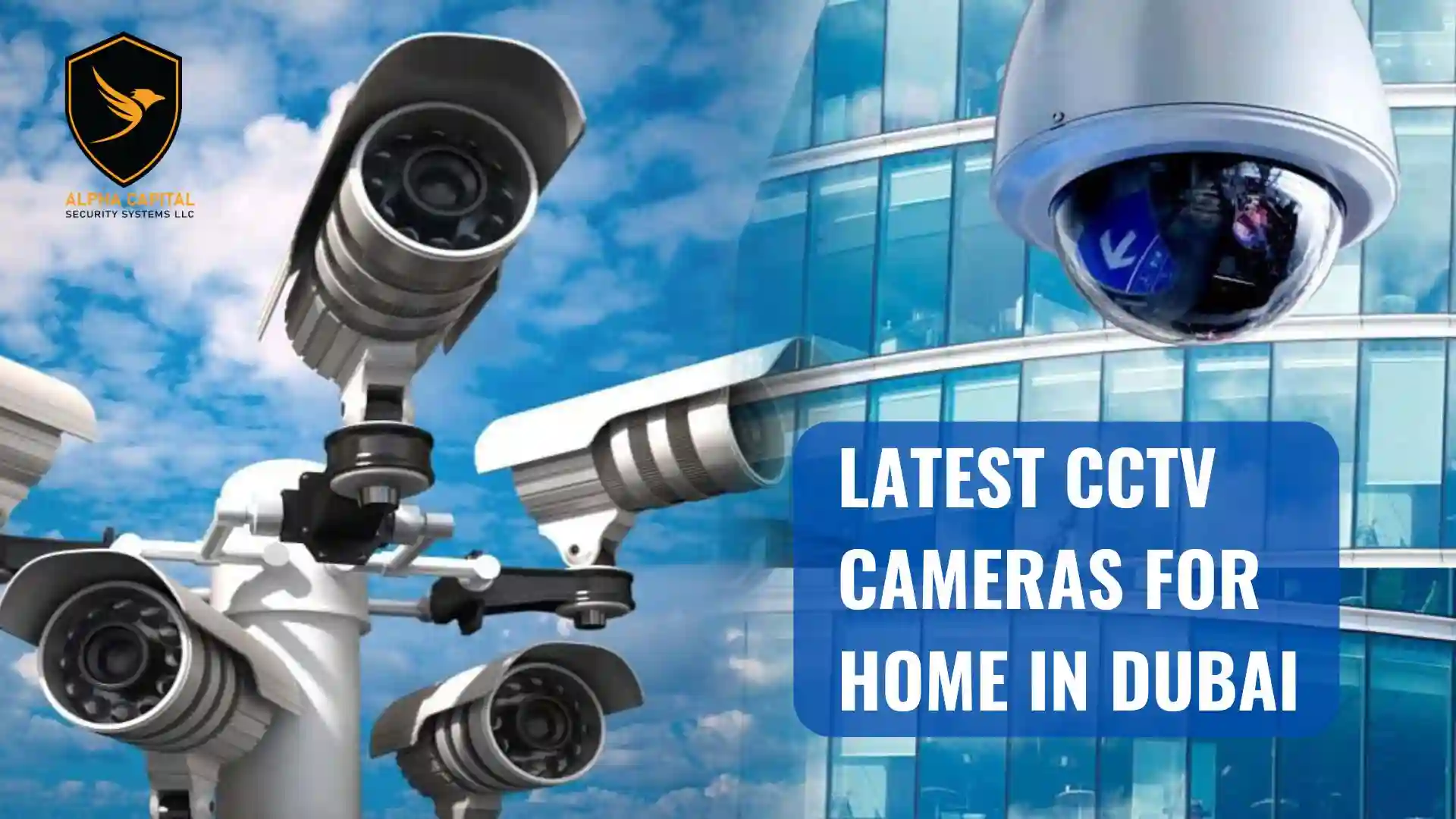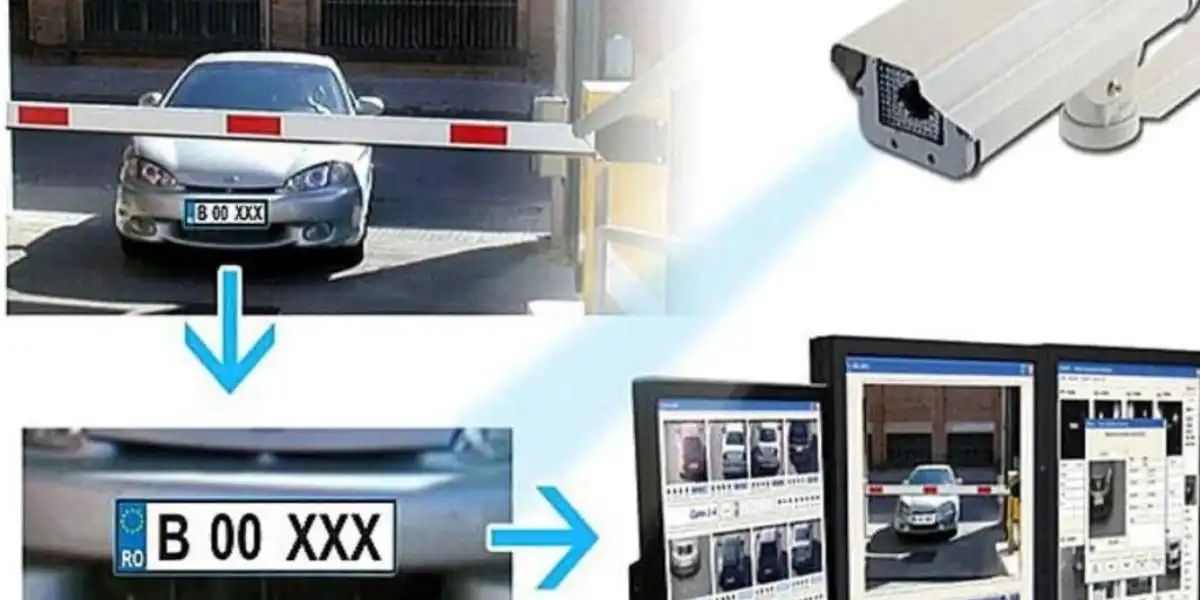Why Rental Property Requires a CCTV Camera:
For the Security of your Assets, it is necessary to install a CCTV camera in a rental property.
- Security: Your property is protected from theft, damage, and other incidents, CCTV aids in crime prevention. Additionally, it may assist in locating criminals.
- Peace of Mind: When you have tenants or spend a lot of time away from home, CCTV gives you peace of mind because it monitors your property around the clock.
- Compliance: In Dubai, certain areas of investment properties, similar to doors, normal spaces, and stopping regions, require CCTV establishment to meet guidelines.
- Evidence: In the event of a crime or incident, CCTV footage can be used as evidence, assisting with insurance claims and other legal matters.
- Safety: By identifying potential threats and deterring crime, CCTV improves the safety of tenants and visitors. It likewise supports observing the prosperity of kids and seniors.
- Tenant Peace of Mind: Inhabitants value the additional security that CCTV gives, causing them to feel more secure and more agreeable.
- Marketing: CCTV is a useful marketing tool for landlords because it shows off a safe and well-kept property.
Additionally, the following are some specific advantages of CCTV for Dubai rental properties:
- Lower Insurance Costs: Because it reduces the likelihood of claims, installing CCTV may result in lower insurance premiums.
- Increased Property Value: CCTV can make your property more interesting to inhabitants, possibly expanding its worth.
- Improved Customer Service: CCTV empowers better client assistance by offering true serenity and supporting the settling of any issues that might emerge.
If you’re thinking about renting out your property in Dubai, consider investing in CCTV. It’s a small investment that provides peace of mind and several other advantages.
![Install a CCTV Camera in a Rental Property in Dubai 2023 1 [Image of a cctv camera] via [https://i.ytimg.com/vi/0P8wR3Npkw0/maxresdefault.jpg]](https://www.acssllc.ae/wp-content/uploads/2023/07/maxresdefault-1024x576.jpg)
Install a CCTV Camera in a Rental Properties:
Install CCTV camera in a Rental Property can provide peace of thought and added security for each tenant and landlord. However, it’s critical to method the setup procedure cautiously to ensure legal compliance and the privacy of tenants.
In this text, we can cover every component to install a CCTV camera in a rental property, including necessities, permissions, installation steps, and essential issues.
Before you begin the setup system, assess the need for CCTV cameras in the apartment property. Consider factors consisting of the crime fee inside the vicinity, the level of protection required, and any preceding protection incidents that could have come about at the premises.
This evaluation will help you decide the variety and area of cameras needed.
Privacy Laws and Regulations:
Before installing CCTV cameras, it’s far more important to be privy to the privacy legal guidelines and policies that are observed for your jurisdiction. These laws govern the collection, use, and retention of video surveillance pictures.
In many countries, there are precise recommendations on how surveillance cameras may be used in public and private areas.
Tenant Consent:
One of the most essential felony issues is obtaining written consent from the tenants for install a CCTV camera in a rental property.
Without the tenants’ explicit permission, surveillance can be taken into consideration as a breach of privacy, probably leading to felony effects for the owner.
Proper Disclosure:
Apart from obtaining consent, landlords ought to additionally provide clear and conspicuous disclosure about the presence of CCTV cameras on the apartment property. This can be done via signs and symptoms or written notices located at the property’s entrances and different areas underneath surveillance.
Camera Placement:
When putting in CCTV cameras, landlords have to be cautious about digital camera placement to avoid invading tenants’ privacy. Cameras need to never be positioned in private areas like bedrooms, toilets, or areas where tenants have an affordable expectation of privacy.
Data Storage and Access:
It is important to deal with video photos responsibly. Securely save recorded information to save you unauthorized admission. Access to the pictures ought to be restricted to legal individuals, along with the owner or assets management personnel.
Respect Local Laws:
To install a CCTV camera in a rental property. Different jurisdictions might also have varying requirements and restrictions regarding CCTV installations in condominium properties. Some regions might also prohibit positive forms of cameras, mandate particular signage, or have obstacles to recording audio alongside the video. It is essential to make yourself familiar with nearby legal guidelines to ensure compliance.
Compliance with Fair Housing Laws:
When putting in CCTV cameras, landlords must make certain that the surveillance does no longer discriminate towards included instructions below honest housing laws. The digicam placement ought to be steady and not target specific individuals or companies based totally on race, color, religion, sex, countrywide starting place, disability, or familial popularity.
Maintenance and Monitoring:
Regularly preserve and screen the CCTV cameras to ensure they are functioning efficaciously. Malfunctioning cameras that result in an invasion of privacy or inadequate security might also bring about legal liabilities for the owner.
Obtain Consent and Legal Permissions:
The first and maximum critical step in installing CCTV cameras in a condo property is to acquire consent from the tenants. As a landlord, you need to seek written permission from all occupants stricken by the digicam setup. This is important to conform with privacy legal guidelines and maintain a fantastic landlord-tenant relationship. Additionally, studies neighborhood laws and regulations referring to CCTV installations, as some areas may have unique requirements or restrictions.
Consult with a Professional:
To install a CCTV camera in a rental property. Unless you’ve enjoyed putting in CCTV structures, it’s miles really helpful to talk over with a professional safety organization. A qualified technician can help you design the best digicam placement, make certain of the right wiring and connectivity, and offer guidance on the first-rate digicam models to your particular needs.
Camera Placement:
To install a CCTV camera in a rental property Strategic digital camera placement is essential for effective surveillance. Focus on vulnerable regions which include entrances, parking plenty, and common areas. Avoid placing cameras in regions wherein tenant privacy is probably compromised, like bedrooms or bathrooms. Ensure that the cameras are discreet to save you from tampering or vandalism.
Power Supply and Connectivity:
CCTV cameras require a dependable energy supply and proper connectivity. Wired cameras frequently provide a stronger connection than wireless ones. If the condo belongings don’t have strength shops within the desired digicam places, remember to consult an electrician to install them adequately.
Recording and Storage:
After install a CCTV camera in a rental property . Decide whether you need non-stop recording or motion-activated recording to shop storage space. The cloud-based garage is convenient but might also include subscription costs. Alternatively, you may use a Network Video Recorder (NVR) or Digital Video Recorder (DVR) on-site for the local garage.
Security Measures:
First, install a CCTV camera in a rental property. Ensure that the CCTV gadget itself is steady from unauthorized get admission. Change default passwords and preserve the camera software program/firmware updated to decrease vulnerabilities.
Informing Tenants:
To install a CCTV camera in a rental property Be transparent with your tenants about the setup and capability of the CCTV cameras. Provide clear facts on why the cameras are being hooked up and the way the photos may be used. Consider posting signs and symptoms to inform visitors that the property is under surveillance.
Choosing the Right CCTV Camera for Rental Property:
Let’s explore the key aspects to keep in mind when selecting the right CCTV camera for your rental property.
Property Size and Camera Requirements:
The size of your rental property plays an important role in determining the number and type of cameras you’ll require. For instance, a small apartment may require fewer cameras compared to a large house while you install a CCTV camera in a rental property.
Setting Your Budget:
Budget considerations are paramount. Keep in mind that while costlier systems may offer advanced features, there are also budget-friendly options that provide adequate security.
Identifying Necessary Features:
Different properties have different security requirements. Consider the features you need for your specific situation. For example, you’ll want cameras with night vision capabilities if your property has low light conditions.
Ensuring Ease of Use:
Ease of use is crucial, especially if you’re not well in CCTV systems. Look for CCTV cameras that are easy to install a CCTV camera in a rental property.
Here are some of the most important features to seek in a CCTV system for your rental property:
- High-Quality Video.
- Motion Detection.
- Night Vision.
- Storage Capacity.
- Cloud Storage.
- Remote Viewing.
Things to Know Before CCTV Camera Installation:
Rental Property CCTV in Dubai Legal Requirements: Dubai’s dedication to turning into secure and steady reaches out to investment properties, there are specific legal requirements for CCTV installation. In Dubai, landlords are required to place CCTV cameras in unique regions of their homes. These areas include areas like parking, commonplace areas, and points of access and out. The number one motive is to protect tenants and visitors from criminal activity.
The number and type of cameras required can differ based on the area of property and size. While some cameras can be required for smaller properties, an extra huge CCTV device can be required for larger properties.
CCTV Apps for Remote Monitoring in Dubai: Modern technology offers the convenience of remote monitoring for your property’s CCTV system. After install a CCTV camera in a rental property numerous CCTV apps are available, enabling you to oversee your property’s security from your smartphone or computer, whether you’re at home or abroad. Some popular CCTV apps tailored for Dubai include:
- Hikvision iVMS-4500: Designed for Hikvision CCTV systems, this app allows live viewing, playback of recordings, and camera management.
- Dahua SmartPSS: Ideal for Dahua CCTV systems, it offers similar features to Hikvision iVMS-4500.
- Axis Camera Companion: Compatible with Axis CCTV systems, this user-friendly app offers features such as live view, playback, and motion detection.
- Panasonic Security App: For Panasonic CCTV systems, it provides live footage viewing, playback, and motion detection notifications.
- Samsung SmartThings: Although not exclusively for CCTV, this app can be used to monitor various devices, including CCTV cameras. It offers live viewing, playback, and motion detection notifications.
CCTV vs Alarm Systems: Choosing the Right Security:
CCTV systems and alarm systems are both effective ways to enhance security for your rental property. However, they operate differently. CCTV systems continuously record activity in front of the cameras, while alarm systems trigger alerts when specific conditions are met.
CCTV can assist in identifying criminals, whereas alarms primarily serve as deterrents. The choice between CCTV and alarm systems ultimately depends on your specific needs and budget. If you seek a system that deters crime and aids in identifying culprits, CCTV is an excellent choice.
However, if your primary goal is to be alerted to a break-in, an alarm system may be more suitable.
Integration with Dubai Police: A Rental Advantage:
The “Safe City” program offered by Dubai Police allows property owners to connect their CCTV systems to the police network. This integration makes it possible for law enforcement to access your CCTV footage in real-time, which helps them investigate and apprehend criminals by install a CCTV camera in a rental property.
To start this coordination, you’ll have to contact Dubai Police and request permission. They will examine your CCTV framework to guarantee it satisfies their standards, providing you with a username and password for network access upon successful investigation.
CCTV and Rental Property Insurance in Dubai:
After install a CCTV camera in a rental property. Many Dubai rental property insurance policies cover the cost of installing and maintaining CCTV systems. This indicates that you may be eligible for reimbursement in the event of theft or damage to your CCTV system.
It is best to inquire with your insurance company for specifics on whether CCTV is covered by your rental property insurance when you install a CCTV camera in a rental property.
Dubai Rental CCTV: Troubleshooting Guide:
Experiencing issues with your CCTV Camera in Dubai can be frustrating but manageable after install a CCTV camera in a rental property. Here are some CCTV camera troubleshooting steps:
- Make sure the cameras are on and check the power supply.
- Investigate the cables for damage or disconnection.
- Take restarting the cameras.
- If problems persist, don’t hesitate to reach out to the manufacturer of your CCTV system for assistance.
Conclusion to Install a CCTV Camera in a Rental Property:
Install a CCTV camera in a rental property belongings can notably enhance protection and offer peace of mind. However, it should be achieved responsibly, with the consent of tenants and adherence to local privacy laws.
By following the stairs outlined in this guide and looking for professional help while wished, you may create more secure surroundings for everybody even as respecting privacy and legal necessities after install a CCTV camera in a rental property.
After reading a whole article about install a CCTV camera in a rental property you have sufficient knowledge of what to do and what you should consider next for install a CCTV camera in a rental property. Always take into account that conversation and transparency are key to keeping a fantastic courting along with your tenants at some stage in install a CCTV camera in a rental property.










